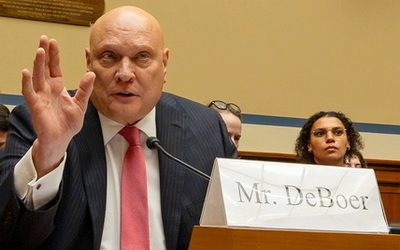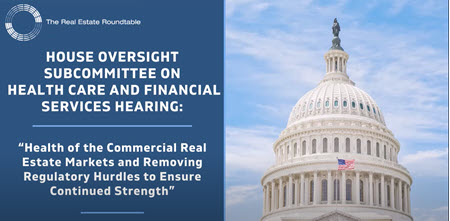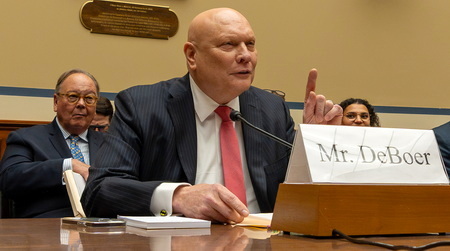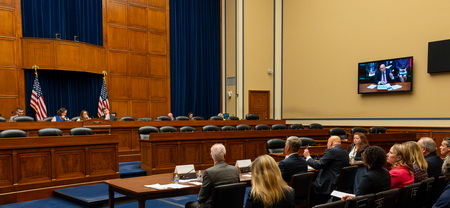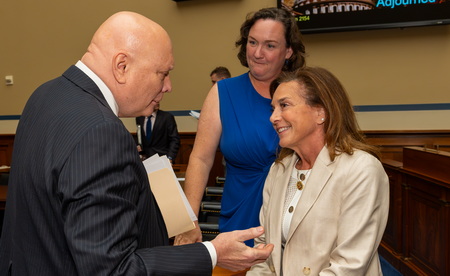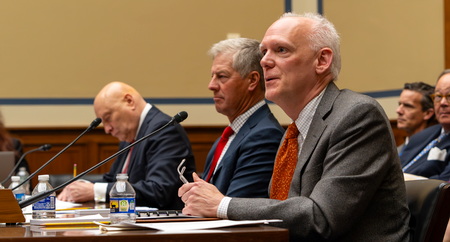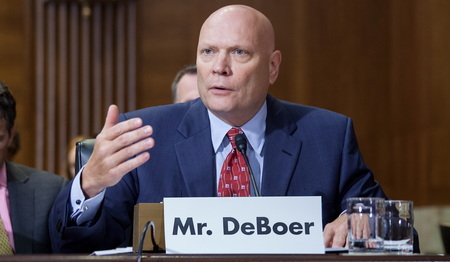Real Estate Roundtable Chairman Emeritus (2015-2018) William C. Rudin (Co-Executive Chairman, Rudin) discussed commercial real estate conditions on CNBC’s Squawk Box this morning, emphasizing how public policies could help the industry meet significant challenges as it faces a wave of looming maturities in a high-interest rate environment.
Federal Action Needed
- Rudin noted that unless a property owner has a top-tier asset with a stable long-term lease, liquidity is a major issue. “The federal government and the Federal Reserve have to keep giving the banks flexibility to be able to restructure some of the loans.” (Watch Rudin’s comments)
- Rudin added, “The federal government should support legislation to help incentivize owners to convert obsolete office buildings to residential—and the federal government should be getting their employees back into the office space.” (Entire Rudin interview)
- Rudin referenced recent testimony by Roundtable President and CEO Jeffrey DeBoer that addressed these issues during a House subcommitteeon the “Health of the Commercial Real Estate Markets and Removing Regulatory Hurdles to Ensure Continued Strength.” (Roundtable Weekly, May 3 and video of DeBoer’s testimony)
Roundtable Recommendations
- The Roundtable’s testimony last week addressed a wide swath of concerns for owners, lenders, and local communities. DeBoer discussed specific issues with House policymakers, including market liquidity, the state of the office sector, remote work, affordable housing, and property conversions. (DeBoer’s oral statement and written testimony)
- DeBoer also commended efforts by House Oversight Committee Chairman James Comer (R-KY) to bring federal workers back as the lead sponsor of the Stopping Home Office Work’s Unproductive Problems (SHOW UP) Act (H.R. 139). (See GlobeSt, May 2 and the WorkPlace Return story below)
- A key Roundtable recommendation was the need to encourage banks and loan servicers to extend maturing loans and restructure maturing loans with new equity—effectively making “cash-in refinances”—by converting non-performing and criticized loans to new performing loans. (Watch select video clips of DeBoer’s comments)
- DeBoer also emphasized the need for lawmakers to stimulate the production of affordable housing by converting obsolete buildings into housing, increasing the Low Income Housing Tax Credit volume caps, incentivizing local zoning and permitting reforms, increasing efficiency in the Section 8 housing voucher program, and more. (Roundtable Weekly, May 3)
- Separately, The Roundtable and a broad real estate coalition submitted a set of specific policy recommendations last week to Congress detailing a host of pending legislative and regulatory actions that would help provide housing to more Americans. (Roundtable Weekly, May 3)
The Roundtable’s all-member Annual Meeting on June 20-21 in Washington, DC will include speakers and policy advisor committee meetings focused on many of these topics.
# # #

